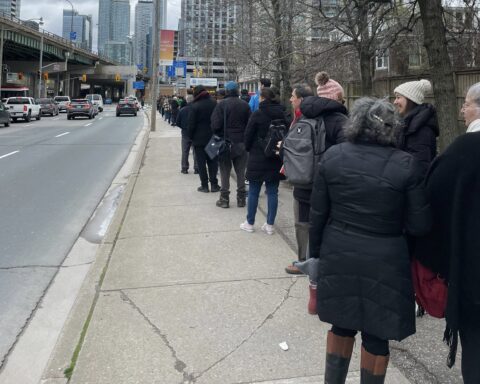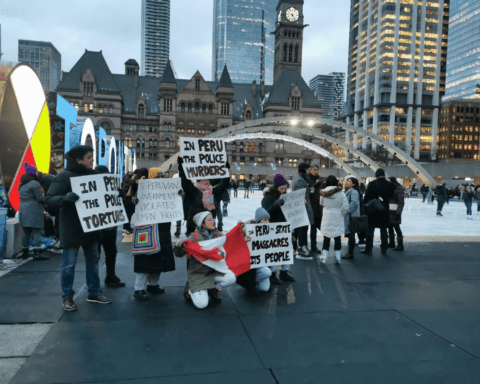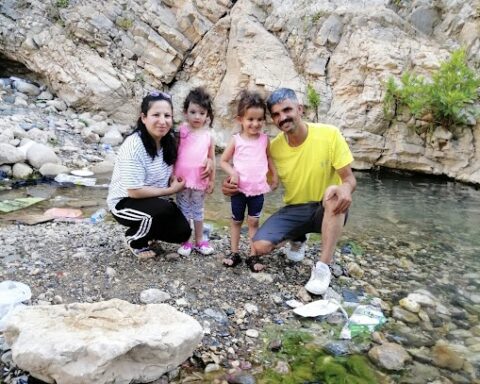The Armenian Diaspora and Turkey’s civil society should work together to pressure the Turkish government to recognize the Armenian Genocide, a Turkish-German historian told the Armenian community in Toronto, ruling out that recognition would lead to comprehensive reparation.
“Armenia as a small nation does not have enough leverage to pressure Turkey,” said Taner Akcam, the first Turkish academic to acknowledge the Armenian Genocide. “In order to pressure Turkey there are two main mechanisms — one is the Diaspora and the second is the domestic opposition in Turkey. Unfortunately the Diaspora and the civil society in Turkey do not work together. This is the missing link.”
Up to a million and a half Armenians were massacred after 1915 as they were forced out of their homeland towards the Syrian desert during the First World War.
Akcam said he believed the Diaspora is currently putting pressure on the Turkish government in an indirect way when they urge their own governments to pressure Ankara and “mostly the U.S. and Canadian governments or other big powers use this Armenian asking for recognition for their political interests.” Akcam is a professor of Genocide Studies as well as the holder of the chair of Armenian Studies at Clark University, a private research university and liberal arts college in Worcester, Massachusetts.
Akcam made his comments at the start of a three-day event commemorating the sixth anniversary of the assassination of Turkish-Armenian journalist and human rights activist Hrant Dink. The event was jointly organized by the Toronto chapter of Hamazkayin Armenian Educational and Cultural Society and Bolsahye Cultural Association of Toronto.
Recognition of the Armenian Genocide will not eventually lead to full reparation, Ardahan-born Akcam told members of Canada’s second largest Armenian community. “You can never bring back what was lost,” he said, expressing hope a final solution would aim at creating a feeling of satisfaction among the Armenian people “at least with the majority of representatives from the state of Armenia and the Diaspora.”
Many Armenian political organizations in the Diaspora demand a restoration of the Turkish-Armenian border as demarcated by former U.S. President Woodrow Wilson in the 1920 Treaty of Sevres, and a hefty amount of cash reparations.
“There are several ways to compensate,” he said. “Turkey, for example, can open the port of Trabzon for Armenian exports and imports without any taxation.” Port of Trabzon is located on the southeastern shores of the Black Sea, 602 kilometers from Yerevan, the capital of Armenia. Most of Armenia’s imports and exports currently pass through the Georgian Port of Poti, 559 kilometers from Yerevan.
“I wish the best solution is to make the boundaries meaningless between Turkey and Armenia and that Armenians see Ararat as their own,” said Akcam, who earlier delivered a presentation on the English edition of his “The Young Turks’ Crime Against Humanity” book, first published in Turkish in 2008.
Present at the event were Donna Quan, the director of education at the Toronto District School Board, Harout Manougian, TDSB Trustee for Ward 17 and Robert Mewhinney, TDSB Program Coordinator for Social & World Studies & Humanities.
Akcam, who was arrested in 1974 at age 21 for participating in student protests against the Turkish invasion of Cyprus, said Turkish society has remarkably changed and become open. “Turkey now is not Turkey of 2007 or that of 1991 when I published my first book,” he said, noting that several television channels are inviting him to attend live debates on the legacy of Dink. “There is another Turkey now and it’s growing.”




